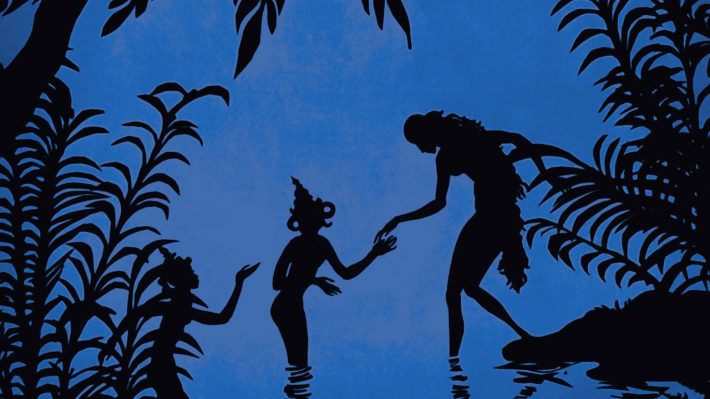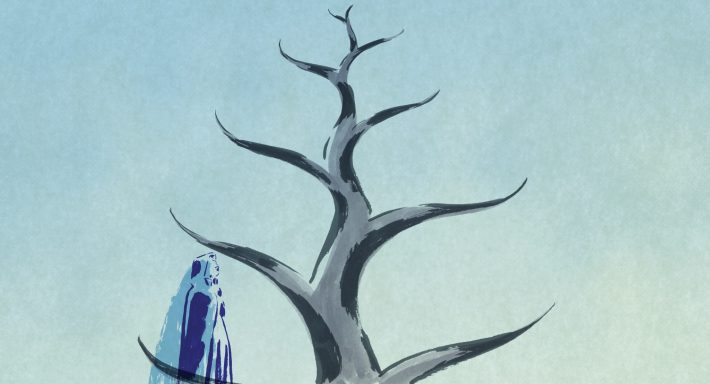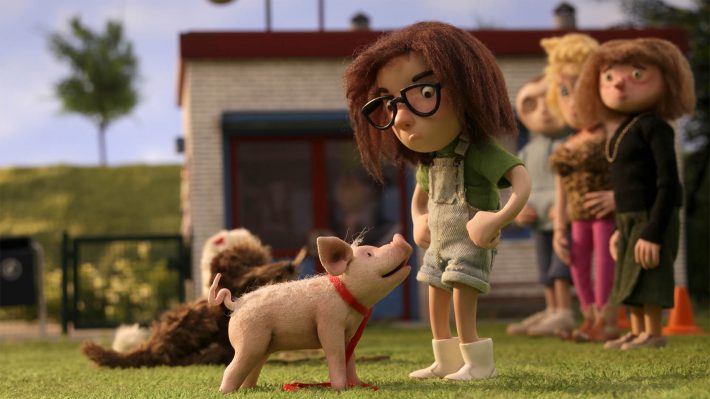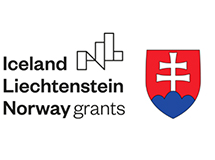Besides a wide selection of animated shorts, the Fest Anča International Animation Festival will also showcase feature films that focus primarily on women’s representation in animation. The festival’s dramaturges explore the male and female gaze in both contemporary and older animated films. Visitors can look forward to wonderful pictures such as Michaela Pavlátová’s award-winning My Sunny Maad (2021), and the ground-breaking Belladonna of Sadness (1973) . And we’ll also be screening the oldest animated feature film with live music accompaniment. Families with kids will also love three feature films picked specifically for children.
The Female Gaze
Fest Anča opens with the screening of My Sunny Maad (2021), a film by award-winning Czech director Michaela Pavlátová, who’s also on the festival jury this year. Her film (a minority co-production with Slovakia) tells the story of Herra, who falls in love with Nazir and moves with him back to his home country – Afghanistan. She doesn’t know what life awaits her or the family she’s becoming part of, instead choosing to exchange her freedoms for love. My Sunny Maad addresses women’s living conditions in Afghanistan, and by setting the story in post-Taliban Kabul it also discusses war conflicts which are, unfortunately, still very relevant today. Pavlátová was awarded the Jury Prize at the Annecy International Animated Film Festival, and even received a Golden Globe nomination.
A Fest Anča highlight is a screening accompanied by live music – hence the lineup will feature the 1926 fairy tale The Adventures of Prince Achmed by German director Lotte Reiniger. It’s considered the oldest animated feature, ahead of Walt Disney’s Snow White and The Seven Dwarfs. Reiniger’s silhouette animation, which she invented and used in over 40 films, is still used and discussed today. This iconic film’s screening will be accompanied by live music performed by Jonatán Pastirčak, aka Isama Zing.

The Male Gaze
Our most emblematic film this year is Belladonna of Sadness, a leading example of 20th-century animation by Japanese director Eiichi Yamamoto. This avant-garde erotic film is ground-breaking in many respects, telling the story of a farmer raped on her wedding night who seeks revenge by making a deal with the devil. This leads to a psychedelic film that combines Gustav Klimt’s eroticism, the story of Joan of Arc, medieval tarot cards, dripping watercolours, and a psychedelic rock soundtrack. Today we can understand Belladonna as a response to the second wave of 1970s feminism.
Sébastien Laudenbach will introduce his take on a lesser-known fairy tale by the Brothers Grimm in his first feature film from 2016, The Girl Without Hands. The story revolves around the archetypal battle between good and evil, when a miller sells his daughter to the devil. She escapes but in so doing loses her hands, thus this minimalist or even impressionist animation tells the story of survival and anguish. In his imaginative picture, Laudenbach introduces a heroine who, in the face of adversity, takes care of herself and her child. The Girl Without Hands was screened at the prestigious Annecy animation festival in France, as well as at Cannes.

Family Films
Fest Anča will also screen three feature family films. Oink and Even Mice Belong in Heaven reflect this year’s theme of Women in Animation, while the Slovak animated feature Journey to Yourland (formerly Heart of a Tower) resulted from years of hard work.
The heroine of the stop-motion animated film Oink is nine-year-old Babs who receives a pig – Oink – as a present from her grandfather. Babs convinces her parents to let her keep the pig. But the biggest threat to her pet is her grandfather, who secretly enters into a sausage competition. Oink premiered at this year’s Berlinale.

Even Mice Belong in Heaven shows the story of bravery, the search for love, and overcoming prejudice. Nominated for Best European Animated Feature last year, the film portrays two outsiders who find common ground despite contrasting personalities and mindsets to overcome big obstacles. The story introduces us to two mortal enemies, a little mouse and a fox, who after a tragic accident find themselves in pet heaven, where they lose their natural instincts and become best friends. The film was co-directed by Denisa Grimmová and Ján Bubeníček.
The third animated feature is Journey to Yourland by director and friend of Fest Anča – Peter Budinský. Fifteen artists from across the world collaborated on the film about little Riki who ventures into a fantasy world. The whole process, from concept to production, took almost ten years. Riki’s story moves beyond grey stereotypes into a world where ravens behave like humans, cranes walk like robots, and a metal machine wants to dominate the world. He must enter this world to find the truth and save his own world. Festival visitors can also look forward to a masterclass by the creative team behind the film.
About Fest Anča
Fest Anča International Animation Festival – the only Slovak multimedia festival focused on
animated film – is based in the New Synagogue and in the cultural centre Stanica Žilina-Záriečie, both venues being vibrant cultural centers in the city of Žilina. The festival aims to showcase contemporary, progressive animated films, and commemorate the cream of the genre. The long-term vision is to approximate well-known international festivals by uniquely showcasing this art form in Slovakia.
The festival features an international competition of animated short films and music videos, as well as non-competitive screening sections. Attendees can additionally enjoy presentations, exhibitions, workshops, film screenings for children, and numerous accompanying events.
Fest Anča International Animation Festival 2022 is financially supported by the Slovak Audiovisual Fund and LITA Fund. The event was supported from public funds by the Slovak Arts Council. Women in Animation, Fest Anča’s 2022 thematic focus, is an implementation of the Student Forum Fest Anča.
The Student Forum Fest Anča benefits from a EUR 120,609 grant from Iceland, Liechtenstein and Norway through EEA Grants. The project has received co-financing from the State Budget of the Slovak Republic of EUR 18,091. The aim of the project is to work with attendees, promote international mobility and cooperation between European schools, share knowledge and skills, and compare animation teaching methods across Europe.
